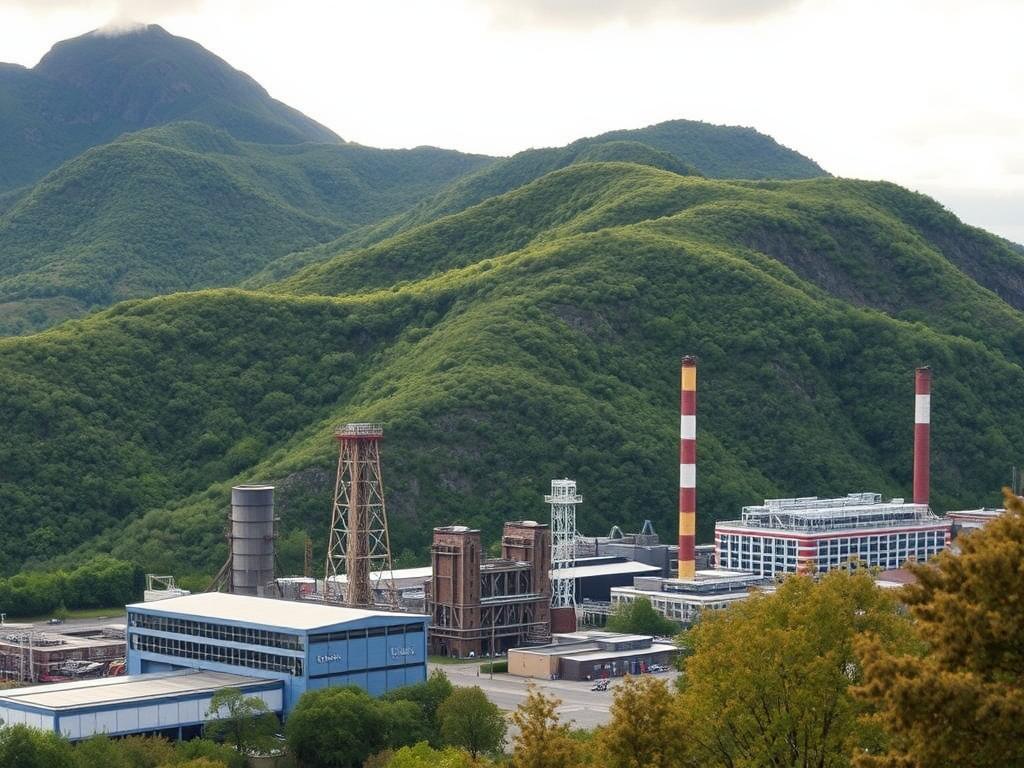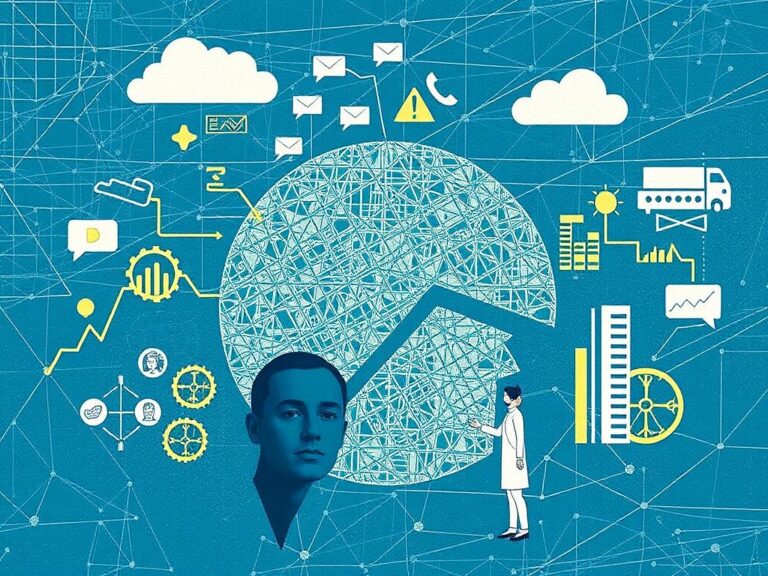The Future of Capital in a Post-Industrial World: Navigating New Frontiers
In today’s rapidly evolving economic landscape, the concept of capital is undergoing a profound transformation. The shift from traditional industrial economies to post-industrial societies has reshaped the way we think about wealth, investment, and value creation. No longer confined to physical assets like factories and machinery, capital now embraces digital platforms, intellectual property, and human creativity. Understanding the future of capital in this post-industrial world is crucial for businesses, investors, and policymakers alike, as it will determine who thrives and who falls behind in the coming decades.
What Defines Capital in a Post-Industrial Era?
Capital traditionally referred to tangible assets—land, machinery, and financial resources used to produce goods. However, the post-industrial world redefines capital by emphasizing intangible assets. Knowledge, data, innovation, and networks have become the new currency. Human capital, representing skills and expertise, increasingly drives economic growth. Meanwhile, social capital—relationships and trust—plays an essential role in facilitating cooperation and access to opportunities. As a result, measuring capital has become more complex, integrating both visible and invisible contributions.
Key Characteristics of Modern Capital
- Intangibility: A significant portion of assets no longer exists in physical form, complicating valuation and traditional accounting methods.
- Mobility: Digital capital moves quickly across borders, unbound by the limitations of physical infrastructure or geopolitical boundaries.
- Network Effects: The value of platforms and data often grows exponentially as more users and connections are added.
- Sustainability Focus: Environmental and social governance (ESG) criteria increasingly influence capital allocation decisions.
The Role of Technology in Shaping Capital’s Future
Technological innovation acts as a powerful catalyst in redefining capital’s nature and role. Automation, artificial intelligence (AI), and blockchain are some of the technologies driving this change. AI enhances human capital by augmenting decision-making and creativity, making knowledge workers more productive. Blockchain introduces transparency and decentralization to capital markets, altering how assets are traded and owned. Meanwhile, digital platforms enable new business models that leverage network effects and data-driven insights. As a result, capital is not just about possession but about access, control, and the ability to leverage digital ecosystems.
How Technology Transforms Different Types of Capital
| Type of Capital | Traditional Role | Post-Industrial Impact |
|---|---|---|
| Financial Capital | Funding factory operations and physical investments | Support for digital startups, venture capital in innovation sectors |
| Human Capital | Labor and specialized skills in manufacturing | Emphasis on knowledge work, creativity, and lifelong learning |
| Social Capital | Local networks and community ties | Global digital communities and professional networks |
| Intellectual Capital | Patents and copyrights protecting inventions | Data ownership, AI models, software, and brand value |
The Rise of Data as the New Capital Form
In a post-industrial world, data represents the lifeblood of modern economies. Often dubbed the “new oil,” data fuels innovation, optimization, and market disruption. Data capital allows companies to personalize services, anticipate consumer needs, and automate complex processes. However, unlike traditional commodities, data’s value multiplies with sharing and aggregation, raising questions about ownership, privacy, and ethical use. Governments and corporations face the challenge of balancing innovation incentives with protecting individual rights, making data governance a cornerstone of future capital frameworks.
Data Capital: Opportunities and Challenges
- Opportunities: Enhanced customer insights, predictive analytics, and new business models.
- Challenges: Cybersecurity risks, data monopolies, and ethical dilemmas around consent.
- Regulatory Trends: Increasing transparency and mandates such as GDPR and data trusts.
Economic Implications: Inequality and Redistribution

The evolution of capital in a post-industrial society brings with it significant economic implications, especially regarding inequality. As capital becomes more concentrated in digital platforms and intellectual assets, wealth disparities have widened. Traditional workers without digital skills face displacement, while those holding key technologies and networks accumulate significant power and wealth. This conundrum calls for innovative redistribution mechanisms that go beyond taxation of physical wealth, focusing on opportunities like universal basic income, reskilling programs, and equitable access to technology.
Strategies to Address Capital-Driven Inequality
| Strategy | Description | Potential Impact |
|---|---|---|
| Reskilling and Education | Investing in digital literacy and lifelong learning | Empowers workforce transition to knowledge-based jobs |
| Progressive Taxation on Data and Tech | Taxing digital monopolies and data-driven profits | Funds public programs and reduces wealth concentration |
| Inclusive Innovation Policies | Supporting diverse entrepreneurs and regional tech hubs | Promotes broad-based economic growth and opportunity |
Environmental Sustainability and the New Capital Paradigm

The post-industrial shift also coincides with growing awareness of environmental limits. Capital no longer just funds production; it must now consider environmental impact and sustainability. Green capital—investment in renewable energy, circular economy projects, and sustainable infrastructures—is gaining momentum. Investors increasingly evaluate companies based on their environmental, social, and governance (ESG) performance, signaling a shift in what constitutes valuable and responsible capital deployment.
The Integration of Sustainability in Capital Decisions
- Impact Investing: Capital directed toward social and environmental outcomes alongside financial returns.
- Carbon Pricing: Internalizing environmental costs in investment decisions.
- Corporate Responsibility: Transparency and accountability shaping investor confidence.
Looking Forward: How Can We Prepare for the Future of Capital?
Preparing for the future of capital means embracing flexibility, continuous learning, and innovation. Businesses should invest in digital transformation and nurture human and intellectual capital. Policymakers need to rethink regulation and education systems to keep pace with technological progress. Individuals, too, must develop skills that align with the demands of a knowledge-based economy. Above all, embracing collaboration over competition can unlock capital’s potential as a driver of inclusive, sustainable growth.
Key Takeaways for Different Stakeholders
| Stakeholder | Recommended Actions |
|---|---|
| Businesses | Adopt digital tools, invest in talent, prioritize ESG goals |
| Governments | Implement fair data regulations, fund education, support innovation |
| Individuals | Develop tech skills, engage in lifelong learning, participate in networks |
Conclusion

The future of capital in a post-industrial world is bright but complex, marked by shifts toward intangible assets, technology-driven growth, and a heightened sense of social and environmental responsibility. Understanding these changes is vital for anyone looking to succeed in the new economy. As capital becomes more digital, mobile, and networked, it offers unprecedented opportunities for innovation and prosperity — but also challenges us to rethink how wealth is created and shared. By embracing adaptability, inclusivity, and sustainability, societies can ensure that the evolving nature of capital leads to a future that benefits all, not just a privileged few.







